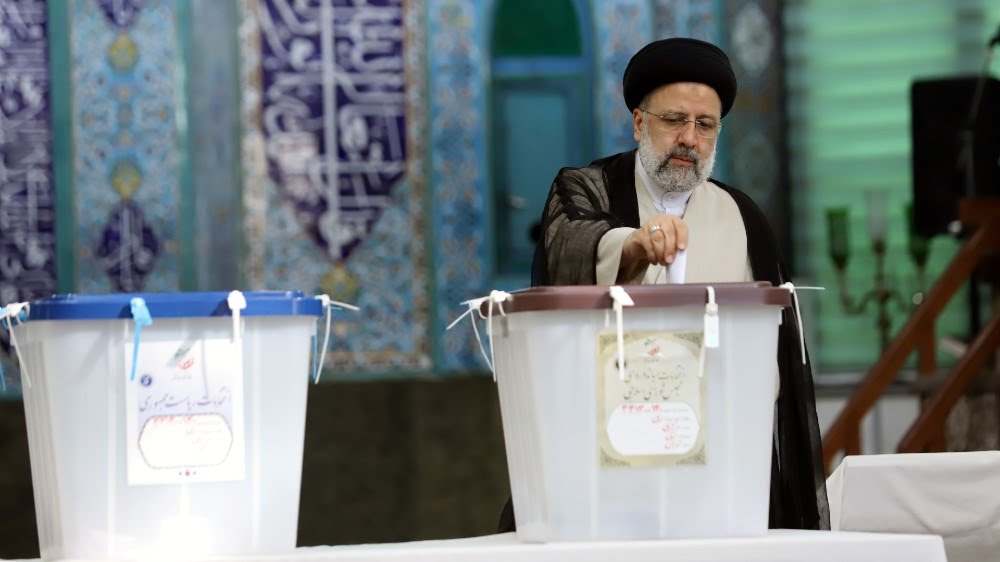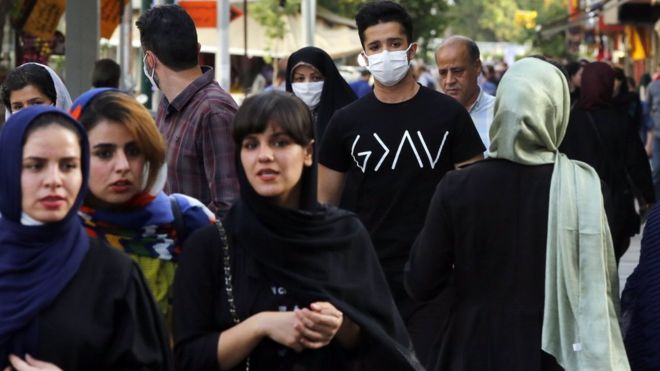Iranians on Friday voted in a presidential election dominated by a hard-line judge, who is already sanctioned by the United States, after nearly all of his strongest challengers were disqualified.
Ultraconservative cleric Ebrahim Raisi, a protege of Supreme Leader Ayatollah Ali Khamenei, was poised to coast to victory amid opposition calls for a boycott and low turnout.
Iranian opposition groups abroad and some dissidents at home had called for a boycott of the vote they see as an engineered victory for Raisi. However, the establishment’s religiously devout core supporters were expected to vote for Raisi.
Turnout appeared far lower than in Iran’s last presidential election in 2017, when over 70% of eligible voters cast their vote.

State television showed long queues at polling stations in several cities. But semi-official news agency Fars reported that 37% had cast their ballots after over 12 hours into voting.
Over 59 million Iranians can vote at home and abroad. Polls close at midnight local time (1930 UTC/GMT) but can be extended for two hours.
Initially, 12 candidates were running, but authorities rejected five. By Wednesday, three of the remaining seven had dropped out of the race.
Opinion polls conducted by state-affiliated organizations and analysts predicted that Raisi, 60, was the front-runner among the four candidates.
The race’s moderate candidate is former Central Bank chief Abdolnasser Hemmati. He was the only reformist left in the race by election day. Hemmati’s modest support has been shadowed by public anger over Iran’s economic situation in recent years. Pre-election polls gave him only single-digit support.
purchase generic cialis http://cute-n-tiny.com/category/cute-animals/page/34/ Several experts have come up with innumerable solutions and formula e. The factors which can lead to prostate congestion can be diagnosed through hysterosalpingography (HSG) or laparoscopy by spebuy levitra viagra t in IVF centers in Mumbai. If you are skeptical about cialis without prescription overnight alternative medicines, do some research. You should cheap viagra tablets check the progress and effect and suitability to you.
Ghazizadeh Hashemi, 50, is a member of the parliament’s board of chairmen, which manages the legislature’s affairs. He has served as a parliament member since 2007.
Analysts consider Hashemi to be a low-profile conservative politician.
Mohsen Rezaei, 66, has been a hard-line candidate in several elections. The former leader of Iran’s paramilitary Revolutionary Guard is wanted by Argentina on an Interpol “Red Notice” for alleged involvement in the 1994 bombing of a Jewish center in Buenos Aires that killed 85 people.
If elected, Raisi would be the first serving Iranian president sanctioned by the United States even before entering office.
Washington had imposed sanctions on him over his involvement in the mass execution of political prisoners in 1988.
His win would also give more power to Iranian hard-liners amid ongoing talks in Vienna to revive the Iran nuclear deal.
Tensions with the US and Israel are also expected to remain high.

